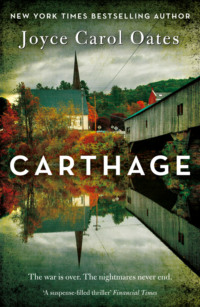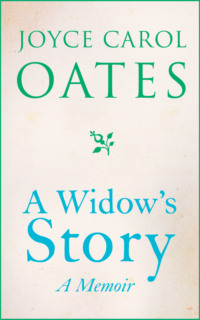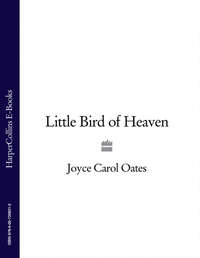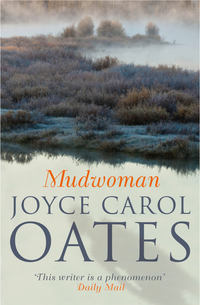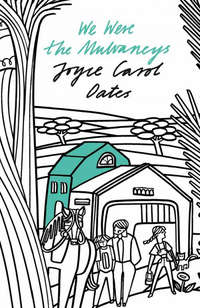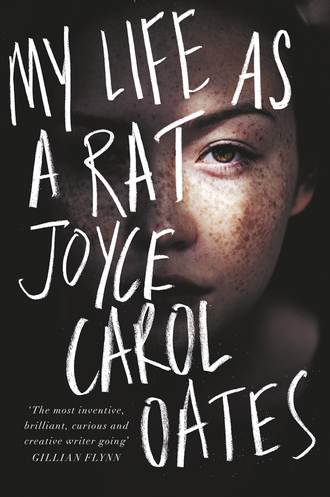
Полная версия
My Life as a Rat

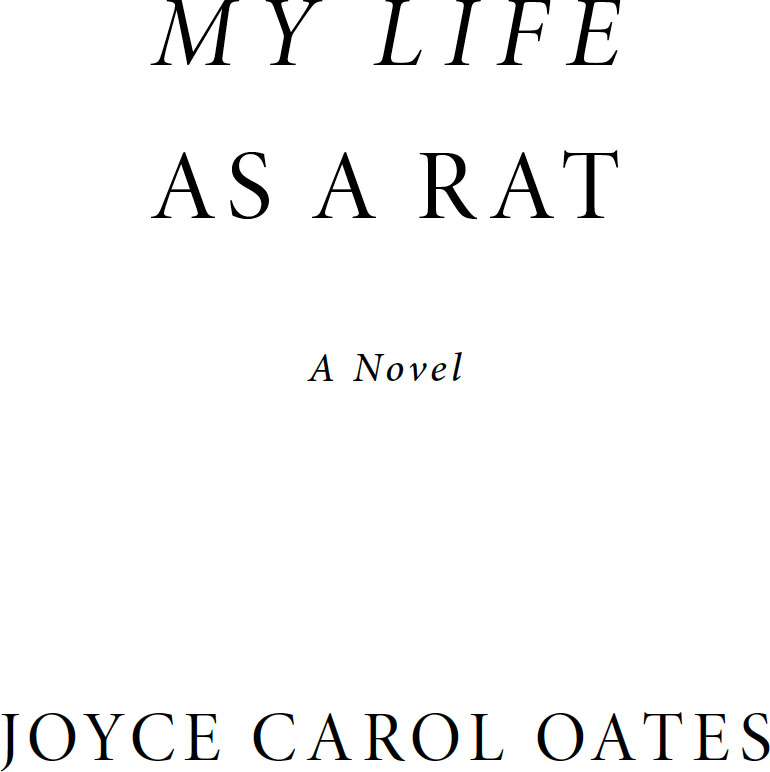

Copyright
4th Estate
An imprint of HarperCollinsPublishers
1 London Bridge Street
London SE1 9GF
www.4thEstate.co.uk
This eBook first published in Great Britain by 4th Estate in 2019
Copyright © The Ontario Review, Inc. 2019
Cover photograph © Getty Images
Joyce Carol Oates asserts the moral right to be identified as the author of this work
A catalogue record for this book is available from the British Library
Information on previously published material appears here.
All rights reserved under International and Pan-American Copyright Conventions. By payment of the required fees, you have been granted the non-exclusive, non-transferable right to access and read the text of this e-book on-screen. No part of this text may be reproduced, transmitted, down-loaded, decompiled, reverse engineered, or stored in or introduced into any information storage and retrieval system, in any form or by any means, whether electronic or mechanical, now known or hereinafter invented, without the express written permission of HarperCollins
Source ISBN: 9780008339647
Ebook Edition © April 2019 ISBN: 9780008339661
Version: 2019-05-04
Dedication
To my friend Elaine Showalter,
and to my husband and first reader, Charlie Gross
Contents
Cover
Title page
Copyright
Dedication
I
The Rat
The Omen: November 2, 1991
Disowned
The Happy Childhood
Best Kisses!
Obituary
“Boys Will Be Boys”
To Die For
“Accident”
Louisville Slugger
The Little Sister
The Promise
The Siege
Because …
The Rescue
The Secret I
The Secret II
Final Confession
“Dear Christ What Did Violet Do Now”
The Revelation
The Bat
Safe House
Runaway
II
“Praying for Violet”
Exile
Sleepwalker
The Iceberg
Turnip Face
Sisters
“Mr. Sandman Bring Me a Dream”
“Dirty Girl”
The Stalker: 1997
“You Are Not Wanted”
Dirty Girl
“Violet, Goodbye!”
III
The Scar
The Burrow
Valentine
Keeping Myself Alive
Off the Books
Rat, Waiting
Sorrowful Virgin
Damned Little Dog
Tongue
Uncanny
First Aid
“Maxed-Out”
The Misunderstanding
The Return
In My Mother’s Garden
Forgiveness
The Guilty Sister
Howard Street
Home
Acknowledgments
About the Author
Novels by Joyce Carol Oates
About the Publisher
The Rat
Go away. Go to hell—rat!
You don’t get another chance to rat on anybody.
It’s true, you will not be given another chance.
There is just the one chance, the first.
The Omen: November 2, 1991
THIS, I WOULD REMEMBER: SMELLY DARK WATER IN THE RIVER near shore, the color of rotted eggplant, we’d seen on the way to school that morning and stopped to stare at.
On the Lock Street Bridge. Crossing on the pedestrian walkway. And there, directly below, the thunderous river (a deep cobalt-blue on clear days, metallic-gray on cloudy days) seemed to have changed color near shore and was purplish-dark, smelling of something like motor oil, roiling and surging as if it was alive like snakes, giant writhing snakes, you didn’t want to look but could not look away.
My sister Katie nudged me crinkling her nose against the smell. “C’mon, Vi’let! Let’s get out of here.”
I was leaning over the railing, staring down. Trying to see—were those actually snakes? Twenty-, thirty-foot-long snakes? Their scales were a winking deep-purple sheen. The sight was so terrifying, I’d begun to shiver convulsively. The odor was making me nauseated, and dizzy.
As far as we could see upstream the oily-purple water came in surges near shore while elsewhere the river was the color of stone, choppy and thunderous—the Niagara River rushing to the Falls seven miles to the north.
We ran from the walkway. Didn’t look back to see if the giant snakes were pursuing us.
I was twelve years old. This was the morning of the last day of my childhood.
(NOT OUR IMAGINATIONS. THE OILY PURPLE WATER LIKE SNAKES in the river had been real.
Alarmed citizens in South Niagara had noticed the phenomenon and reported it. There’d been many calls to local authorities and to 911.
On the front page of that evening’s South Niagara Union Journal it was curtly explained that the excessive discharge of sludge in the river that morning had been the result of routine maintenance of the Niagara County Water Board’s wastewater sedimentation basins and no cause for concern.
What did this mean? What was sludge?
When our father read the boxed item in the Journal he laughed.
“‘Routine.’ ‘Sedimentation’—‘no cause for alarm.’ Sons of bitches are poisoning us, that’s what it means.”)
Disowned
ONCE I’D BEEN DADDY’S FAVORITE OF HIS SEVEN KIDS. BEFORE something terrible happened between us, I am trying still to make right.
This was in November 1991. I was twelve years, seven months old at the time.
Sent me into exile. Thirteen years! To an adult that is not a long time—probably; but to an adolescent, a lifetime.
Who’s Daddy’s favorite little girl?
Violet Rue. Little Violet Rue!
When I was a little girl Daddy would kiss my pug nose, and make me squeal. And Daddy would lift me in his strong arms, and pretend to toss me into the air so I was frightened but did not let on for Daddy did not like scaredy-cat little girls.
There was an intensity to this, the lifting-in-the-arms, the impassioned speech. A delicious fiery smell, Daddy’s breath, fierce and unmistakable and I had no idea why, that he’d been drinking (whiskey) but knowing this ferocity to be the very breath of the father, the breath of the male.
How’s my little girl? Not afraid of your daddy are you?
Better not, Daddy loves his little Violet Rue like crazy!
ONCE, BEFORE I WAS BORN, MY OLDEST SISTER, MIRIAM, HAD BEEN Daddy’s favorite little girl. Later, my sister Katie had been Daddy’s favorite little girl.
But now, the favorite was Violet Rue. And would remain Violet Rue.
Because the youngest, the baby of the Kerrigan family.
Last-born. Most precious.
Daddy had named me himself—Violet Rue. A name he claimed to have heard in an Irish song that had haunted him as a boy.
It was said that Violet Rue had been an accidental pregnancy—a “late” pregnancy—but to the religious-minded nothing can be truly accidental.
All human beings have a special destiny. All souls are precious to God.
The family is a special destiny. The family into which you are born and from which there can be no escape.
Your mother was thrilled! A beautiful new girl-baby to take the place of the others who were growing up and growing away from her and especially the boys she hardly dared touch any longer, their downy cheeks, their prickly cheeks, the heat of their skin, fierce flushed faces she did not mean to surprise, opening a door without knocking, unthinking—Oh. Sorry. I didn’t think anyone was … Your big brothers who’d throw off Mom’s hand if even by chance she touched them.
A baby to love. A girl-baby to adore. The innocence of being loved totally and without question another time when she’d believed there would never be another time …
Of course, Lula was thrilled.
Of course, Lula was devastated. Oh God, oh Jesus no.
Hardly had she recovered from the last pregnancy—she’d determined would be the last. Thirty-seven years old—too old. Thirty pounds overweight. High blood pressure, swollen ankles. Kidney infection. Varicose veins like inky spiderwebs in her thighs fleshy-white as raw chicken.
And the man, the tall handsome Irish American husband. Turning his eyes from her, the bloated white belly, flaccid thighs, breasts like a cow’s udders.
His fault! Though he would blame her.
In private reproach he’d blamed her for years for she’d been the one who’d wanted kids and it was futile to remind him how he’d wanted kids too, how proud he’d been, the first babies, his first sons, dazed and boasting to his male friends he was catching up with them God damn it and boastful even to his father the old sod he couldn’t abide, as the old sod could not abide him.
And she’d been a beautiful woman. Beautiful body he’d been mesmerized by. Soft skin, astonishingly soft white breasts, curve of her belly, hips. Oh, he’d been crazy for her! Like a spell upon him. Those first years.
Six pregnancies. Not wanting to acknowledge—(except to her sister Irma)—that these were, just maybe, at least two pregnancies too many. And then, the seventh …
After the first pregnancy her body began to change. After the second, third. And after the fourth it began to rebel. Cervical polyps were discovered, that (thank God) turned out to be benign and could be easily removed. Another kidney infection. Higher blood pressure, swollen ankles. The doctor advised terminating the pregnancy. But Lula would never have consented. Jerome would never have consented.
It was not something that was discussed. Not openly and not privately. They were Catholics—that was enough. You just did not speak of certain things and of many of these things there were not adequate words in any case.
As boys went unquestioningly to war, in the U.S. military. You did not question, that was not how you saw yourself.
Those weeks, months your mother spent most of each day lying down. Terrified of a miscarriage and terrified that she might die. Praying for the baby to be born healthy and praying for her own life and in this way Lula Kerrigan not only lost her good looks (she’d taken for granted) but also became permanently frightened and anxious, superstitious. Looking for “signs”—that God was trying to tell her something special about herself and the baby growing in her womb.
A “sign” could be something glimpsed out a window—the figure of a gigantic angel in the clouds. A “sign” could be a dream, a mood. A sudden premonition.
In the later stages of her pregnancy no one could induce Lula to leave the house. So big-bellied, breathless and pop-eyed she’d become. Eating ravenously until she made herself sick. Gaining more weight. Knowing that her body disgusted her husband though (of course) (like any guilty husband) Jerome denied it. Last thing Lula Kerrigan wanted to do was expose herself to the eyes of others who’d be pitiless, mocking.
My God. Is that—Lula Kerrigan? Looking like an elephant! Making a spectacle of herself parading around like that.
Scornful expressions you would hear through your childhood, girlhood—making a spectacle, parading around. The harshest sort of denunciation a woman might make of another woman.
Parading around like she owns the place.
This would be charged of women and girls who exhibited themselves: their bodies. Particularly if their bodies were imperfect in obvious ways—too fat. Appearing in public when they should be ashamed of how they looked or in any case aware of how they looked. Of how unsparing eyes would latch onto them, assessing. Never was such a charge made of men or boys.
There appeared to be no masculine equivalent for making a spectacle, parading around.
As, you’d discover, there was no masculine equivalent for bitch, slut.
The Happy Childhood
WE WERE JEROME JR., AND MIRIAM, AND LIONEL, AND LES, and Katie, and Rick, and Violet Rue—“Vi’let.”
“Christ! Looks like a platoon.”
Daddy would stare at us with a look of droll astonishment like a character in a comic strip.
But (of course) Daddy was proud of us and loved us even when he had to discipline us. (Which wasn’t often. At least not with the girls in the family.)
Yes, sometimes Daddy did get physical with us kids. A good hard shake, that made your head whip on your neck and your teeth rattle—that was about the limit with my sisters and me. My brothers, Daddy had been known to hit in a different way. Haul off and hit. (But only open-handed, never with a fist. And never with a belt or stick.) What hurt most was Daddy’s anger, fury. That look of profound disappointment, disgust. How the hell could you do such a thing. How could you expect to get away with doing such a thing. The expression in Daddy’s eyes, that made me want to crawl away and die in shame.
Disciplining children. Only what a good responsible parent did, showing love.
Of course, our father’s father had disciplined him. Nine kids in that rowdy Irish Catholic family. Had to let them know who was boss.
One by one the Kerrigan sons grew up, to challenge their father. And one by one the father dealt with them as they deserved.
Old sod. Daddy’s way of speaking of our grandfather when our grandfather wasn’t around.
So much of what Daddy said had to be interpreted. Laughing, shaking his head, or maybe not laughing, exactly. Old sod bastard. God-damned old sod.
Still, when our grandfather had nowhere else to live, Daddy brought him to live with us. Fixed up a room at the rear of the house, that had been a storage room. Insulation, new tile floor, private entrance so Granddad could avoid us if he wished. His own bathroom.
Daddy’s birth name was Jerome. This name was never shortened to “Jerry” let alone “Jerr”—even by our mother.
Our mother’s name was Lula—also “Lu”—“Lulu”—“Mommy”—“Mom.”
When speaking to us our parents referred to each other as “your father”—“your mother.” Sometimes in affectionate moments they might say “your daddy”—“your mommy”—but these moments were not often, in later years.
In early years, I would not know. I had not been born into my parents’ early, happier years.
Between our parents there was much that remained unspoken. Now that I am older I have come to see that their connection was like the densely knotted roots of trees, underground and invisible.
Frequently our father called our mother “hon”—in a neutral voice. So bland, so flat, you wouldn’t think that “hon” was derived from “honey.”
If he was irritated about something he called her “Lu-la” in a bitten-off way of reproach.
If he’d been drinking it was “Lu-laaa”—playful verging upon mocking.
At such times our mother was still, stiff, cautious. You did not want to provoke a husband who has been drinking even if, as it might seem, the man is in a mellow mood, teasing and not accusing. No.
Fact is, much of the time we saw our father, later in the day, he’d been drinking. Even when there were no obvious signs, not even the hot fierce smell of his breath.
Mom had a way of communicating to us—Don’t.
Meaning Don’t provoke your father. Not right now.
This Mom could communicate wordlessly with a sidelong roll of her eyes, a stiffening of her mouth.
Your father loves you, as I do—so much! But—don’t test that love …
A painful truth of family life: the most tender emotions can change in an instant. You think your parents love you but is it you they love, or the child who is theirs?
Like leaning too close to the front burner of the stove, as I’d done as a small child, and in an instant my flammable pajama top burst into flame—you can’t believe how swiftly.
But swiftly too as if she’d been preparing for such a calamity for all of her life as a mother, Mom grabbed me, pulled me away from the stove, hugging me, snuffing out the fierce little flames with her body, bare hands smothering the flames, before they could take hold. And trembling then, lifting me to the sink and running cold water over my arms, my hands, just to make sure the flames were gone. Almost fainting, she’d been so frightened. We won’t tell Daddy, sweetie, all right?—Daddy loves you so much he would just be upset.
Comforting to hear Mom speak of Daddy. As if in some way he was her Daddy, too.
And so when Mom called Daddy “Jerome” it was in a respectful voice. Not a playful voice and not an accusatory or critical voice but (you might say) a voice of wariness.
Oh Jerome. I think—we have to talk …
The hushed voice I would just barely hear through the furnace vent in my room in the days following Hadrian Johnson’s death.
EVEN NOW. SO MANY YEARS LATER. THAT STRONG WISH TO CRAWL away, die in shame.
WHEN I WAS A LITTLE GIRL IN THE EARLY 1980S MY FATHER WAS A tall solid-built man with dark spiky hair, hard-muscled arms and shoulders, a smell of tobacco on his breath, and (sometimes) a smell of beer, whiskey. His jaws were covered in coarse stubble except when he shaved, an effort made grudgingly once a week or so by one not willing to be a bearded man but thinking it effeminate to be close-shaven too. By trade he was a plumber and a pipe fitter and something of an amateur carpenter and electrician. In the army he’d been an amateur boxer, a heavyweight, and while we were growing up he had a punching bag and a heavy bag in the garage where he sparred with other men, and with my brothers as they came of age, who could never, not ever, quick on their young legs as they were, avoid their father’s lightning-quick right cross. It was the great dream of my oldest brother Jerome—“Jerr”—that he might someday knock Daddy down on his rear, not out but down; but that never happened.
And Lionel, Les, Rick. He’d made them all “spar” with him, laced big boxing gloves on their hands, gave them instructions, commanded them to Hit me! Try.
We watched. We laughed and applauded. Seeing one of our brothers trying not to cry, wiping bloody snot from his reddened nose, seeing our father release a rat-a-tat of short stinging right-hand blows against a bare, skinny, sweating-pale chest—why was that funny? Was that funny?
Try to catch me, li’l dude. C’mon!
Hey: you’re not giving up until I say so.
Girls were exempt from such humiliations. My sisters and me. But girls were exempt from instructions too. And Daddy’s special glow of approval, when at last one of our brothers managed to land a solid blow or two, or keep himself from falling hard on his ass on the cement floor of the garage.
Not bad, kid. On your way to the Golden Gloves!
Daddy’s girls had to suppose that Daddy was proud of us in other ways, it wasn’t clear how just yet.
He wanted us to be good-looking, which might mean sexy—but not too obviously. Staring at Miriam—her mouth, lipstick—not knowing what to think, how to react: Did he approve, or disapprove?
He’d seemed to be impressed by good grades but report cards were not very real to him, school was a female thing, he’d dropped out of high school without graduating, never read a book nor even glanced inside a book so far as I knew, pushed aside our textbooks if they were in the way on a counter, no curiosity except just once that I remember, pushing aside a book I’d brought home from the public library—The Diary of Anne Frank.
What was this, he’d heard of this, vaguely—in the newspaper, or somewhere—Anne Frank. Nazis?
But Daddy’s interest was fleeting. He’d peered at the cover, the wan girl-face of the diarist, saw nothing to particularly intrigue him, dismissed the book as casually as he’d noticed it without asking me about it. For always Daddy was distracted, busy. His mind was a kaleidoscope of tasks, things to be done, each day a ladder to be climbed, nothing random admitted.
And what pride we felt, my sisters and me, seeing our father in some public place, beside other, ordinary men: taller than most men, better-looking, with a way of carrying himself that was both arrogant and dignified. No matter what Daddy wore, work clothes, work boots, leather jacket he looked good—manly.
And the expression on our mother’s face, when they were together, with others. That particular sort of female, sexual pride. There. That’s him. My husband Jerome. Mine.
To their children, parents are not identical. The mother I knew as the youngest of seven children was certainly not the mother my older siblings knew, who’d been a young wife. Especially, the father I knew was not the father my brothers knew.
For Daddy treated my brothers differently than he treated my sisters and me. To Daddy the world was harshly divided: male, female.
He loved my brothers in a way different from the way he loved my sisters and me, a fiercer love, a more demanding love, mixed with impatience, at times even derision; a hurtful love. In my brothers he saw himself and so found fault, even shame, a need to punish. But also a blindness, a refusal to detach himself from them.
His daughters, his girls, Daddy adored. You would not have said of any Kerrigan that he adored his sons.
We were thrilled to obey him, we basked in his attention, his love. It was a protective love, a wish to cherish but also a wish to control, even coerce. It was not a wish to know—to know who we were, or might be.
Yet, Daddy behaved differently with Miriam, and with Katie, than he did with me. It was a subtle difference but we knew.
He’d have claimed that he loved us all equally. In fact, he’d have been angry if anyone had suggested otherwise. That is what parents usually claim.
Until there is a day, an hour, when they cease making that claim.
TWO FACTS ABOUT DADDY: HE’D FOUGHT IN VIETNAM, AND HE’D come back alive and (mostly) undamaged.



